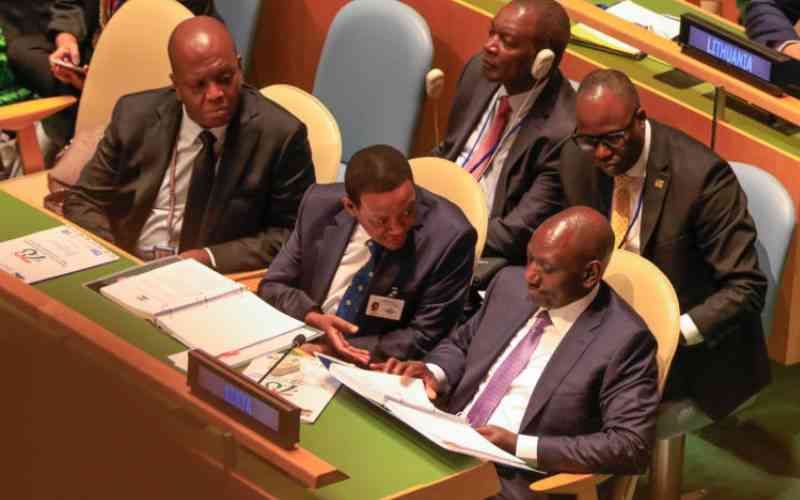×
The Standard e-Paper
Join Thousands Daily

A lot of meetings bringing together world leaders, like the ongoing United Nations General Assembly (UNGA), are full of ambitions to address climate change, pollution and biodiversity loss that hamper development for many nations.
Money is the crucial matter at all the meetings, be they UNGA, UN climate talks (Conference of Parties), G7, G20, even locally, African Ministerial Conference on Environment, Conference on Climate Change and Development in Africa, and the first Africa Climate Summit.